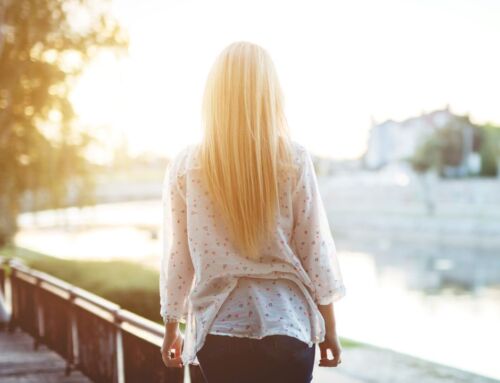Star Wars and Adoption Language
May 2, 2023

When most people think of the Star Wars franchise, they think of Jedis, of Darth Vader and of epic battle scenes in a galaxy far, far away. The battle between good and evil isn’t the only common theme – adoption makes an appearance throughout the movies and TV series.
Luke was adopted by his aunt and uncle. Leia was adopted by the Organas. Even Grogu (aka Baby Yoda) is adopted by the Mandalorian.
It’s definitely exciting, especially for adoptees, to see other adopted persons portrayed in the media – where the emphasis is on the family you make. However, a rewatching of 1984’s Return of the Jedi brings to light how much about adoption, and the way we speak about it, has changed.
Luke: “Leia, do you remember your mother? Your real mother?”
Ouch.
As adoption professionals, one of our goals is to educate others about respectful adoption language. We can’t help but cringe when Luke asks Leia is she remembers her “real mother.” What is a real mother anyway? Is an adoptive parent somehow fake?
The issue may be less in the concept of a “real” mother and more in its exclusiveness. The implication is that there can only be one real mother but in reality, each adoptee has two – the real mother that gave birth to him, and the real mother that cares for him or her on a daily basis. Neither one is any more real than the other; they only have different roles.
Why Is Adoption Language Important?
As adoption research and studies – and a focus on mental health – have grown in the past 40 years, we’ve learned a lot about how to best help everyone in the adoption triad. We’ve learned that the language we use can have a significant impact on the way people think and talk about adoption. Our words can either reinforce negative stereotypes and misconceptions about adoption or promote a more positive and respectful view of it.
Adoption language can also affect the way adopted individuals see themselves and their experiences. If the language used to describe adoption is stigmatizing or negative, it can make adopted individuals feel isolated or ashamed of their identity. Conversely, if the language used is respectful and positive, it can help adopted individuals feel proud of their identity and experiences.
For an adoptee, the idea that her only real mother is her birth mother can remind them of their lack of biological ties. It can bring up feelings of insecurity and devalues the relationship with their adoptive family.
For an adoptive mother, invalidating her work as a parent because she did not carry the child is incredibly hurtful. Many adoptive mothers carry a sense of grief over not being able to conceive a child themselves, and implying that this makes them less than “real mothers” is painful and inaccurate.
For a birth mother, the term “real mother” may make her feel guilt or shame that she is not the one mothering her child on a daily basis – that as a “real mother,” she should be doing these things, but isn’t.

Overall, using appropriate and respectful adoption language is important for promoting positive attitudes and understanding towards adoption, and for supporting the emotional well-being and identity of adopted individuals.
While some of the language Star Wars uses around adoption may be outdated, we still love the overall theme of creating your own family. Aside from Luke, Leia and Grogu, many other characters have been separated from their biological families – Rey, and Finn, for example. As we follow their stories, we get to see them form their own families with the people around them, providing love, support and a sense of belonging. And that is beautiful to watch, no words required.





